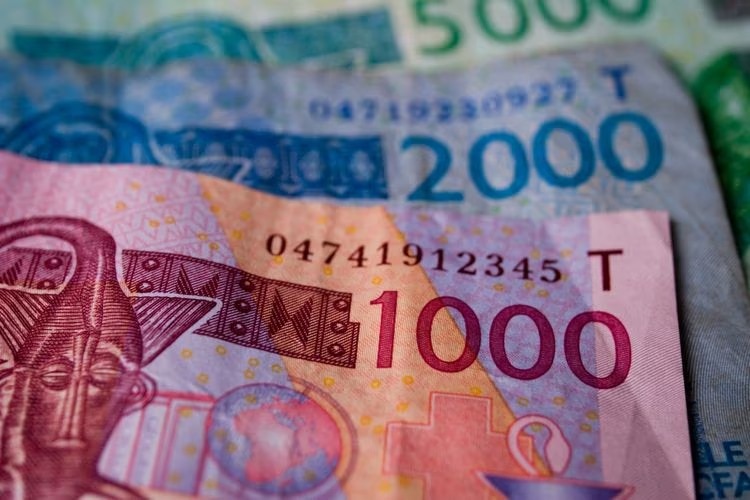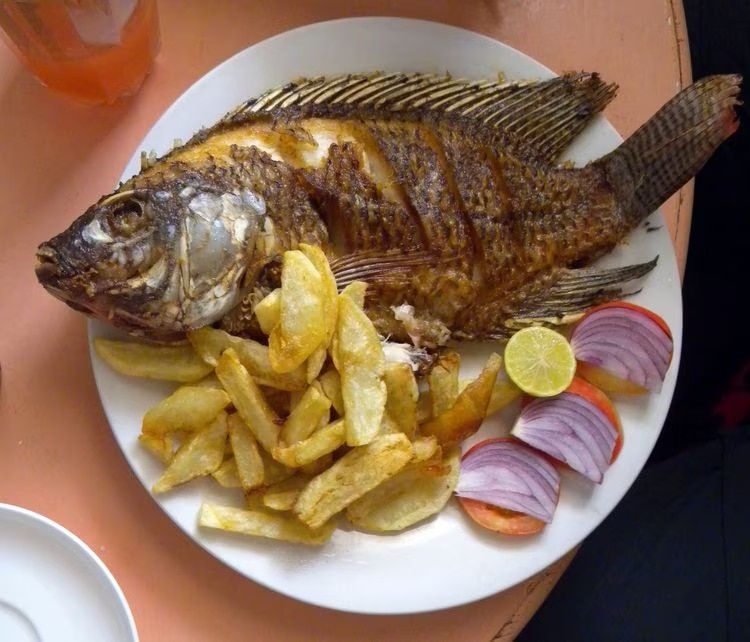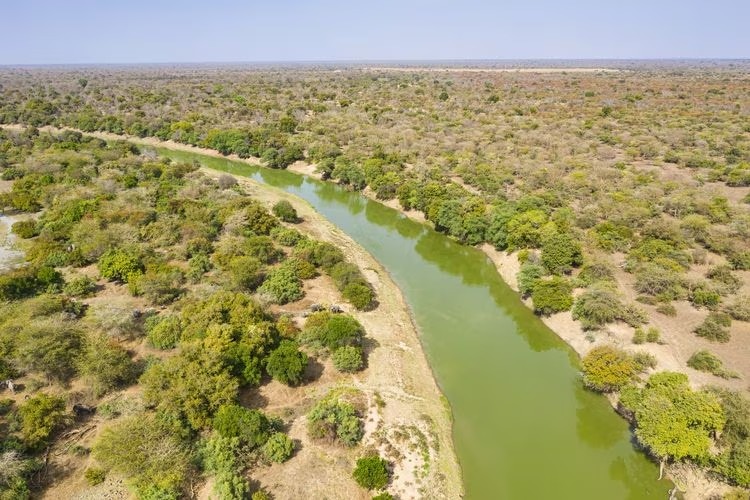Chad Travel Tips and Information
Official Name
Republic of Chad
Capital
N'Djamena
Population
Country Code
Approximately 20.3 million
TD
Country Code (international calls)
+235
The flight time to Chad is approximately ---- hours. Check the climate, currency, religion, manners, other information of Chad below. Wishing you pleasant travels to Chad.
Chad is bordered by Libya to the north, by Sudan on the east, and Cameroon and Nigeria to the southwest. It is the second largest country in Africa. N'Djamena is the capital city of Chad and is one of the largest cities in Africa.
Local Climate / Weather
Chad’s climate offers a range of experiences for travelers, featuring both arid deserts in the north and tropical savannas in the south. Generally, Chad has three primary climate zones: the Saharan in the north, the Sahelian in the central region, and the Sudanian in the south. The best time for travelers to visit Chad is typically from November to February when temperatures are moderate, and humidity is low, making travel and exploration comfortable. ・Dry Season (November to April): The most recommended period for travel, especially from December to February, where temperatures range from a comfortable 20°C to 30°C. This season is ideal for exploring natural sites like Zakouma National Park, known for its wildlife safaris, and for visiting the Sahara region with milder conditions. ・Wet Season (May to October): Primarily affecting the southern regions, this period brings intense rainfall, especially between June and September. The rains can make certain areas difficult to access due to muddy conditions, so travelers may need to plan visits carefully. For those venturing to N’Djamena, the capital, rain typically peaks in August.
Currency & Tipping
Currency
When traveling to Chad, it’s helpful for travelers to understand the local currency and tipping practices. The currency used in Chad is the Central African CFA Franc (XAF), which is shared with other Central African countries. Visitors should plan to exchange for CFA Francs either at airports, local banks, or authorized currency exchange centers, as the CFA Franc is not widely available internationally. Credit card usage is limited mainly to high-end hotels or international businesses, so having cash on hand is essential for most purchases.
Tipping
Tipping in Chad is not widely expected, but it is appreciated in the tourism and service industries, especially by tour guides, drivers, and hotel staff. A small tip, typically around 5-10% of the bill, is considered polite when service is exceptional. Familiarizing yourself with Chad’s currency and tipping etiquette ensures a smoother travel experience and leaves a positive impression on the local hospitality staff.
Useful Travel Information

Voltage & Electrical Outlets
In Chad, the standard voltage is 220V with a frequency of 50Hz, and outlets typically use the European-style Type C and E plugs. Travelers should bring a universal adapter and check if their electronics support 220V to ensure compatibility. For items requiring 110V, a voltage converter may be necessary, as outlets may not offer lower voltages.

Internet Connectivity
Accessing the internet in Chad can vary depending on location. Major cities like N'Djamena have a fair range of options, with mobile carriers offering data packages suitable for travelers. Prominent local carriers include Airtel Chad and Tigo Chad, both providing prepaid SIM cards with data plans for short-term use. However, internet speeds might be slower than what most travelers are accustomed to, and coverage may be limited in remote areas. Connecting through local Wi-Fi hotspots, usually found in hotels or certain cafes in urban areas, is also an option.
Water for Consumption (Drinking Water)
In Chad, drinking tap water is generally not recommended for travelers due to potential health risks. It is best to rely on bottled water, which is widely available in markets and convenience stores, especially in larger cities. If bottled water is not accessible, using portable water purifiers or purification tablets is advisable to ensure safety. For those exploring more remote regions, preparing with sufficient bottled water supplies is essential.
Culture, Religion & Social Etiquette
Culture
Chad is a culturally rich country with over 200 ethnic groups, each bringing its unique customs and traditions. Notably, the Sara people in the south are known for vibrant dances, traditional ceremonies, and symbolic scarification practices, while the Arabic-speaking groups in the north hold unique desert lifestyles shaped by nomadic traditions. For travelers, exploring Chad offers an authentic cultural experience, where the distinct mix of music, dance, and folklore plays a significant role in celebrations and gatherings.
Religion
Religion in Chad is diverse, with Islam being the dominant faith in the north and Christianity prevalent in the south. Traditional African beliefs also hold influence in some communities. When visiting Chad, travelers may notice the importance of religious practices in daily life, especially during Islamic and Christian festivities. Respecting religious customs, such as Friday prayers in mosques or the church gatherings on Sundays, is essential for those exploring local communities.
Social Etiquette
Chadian manners and etiquette reflect the country’s traditional and religious values. Greeting customs vary by region, but a polite handshake with the right hand is generally appreciated across the country. In more traditional or Muslim areas, it’s customary to avoid direct eye contact or handshakes between men and women unless initiated. Modesty in dress is valued, especially in rural and conservative areas, so travelers are encouraged to wear clothing that covers the shoulders and knees. As a mark of respect, it’s also common to address elders and respected figures formally. Understanding these cultural nuances helps travelers feel welcomed and show appreciation for Chad's diverse heritage. By embracing local customs, visitors can foster genuine connections and enhance their travel experience in Chad.
Food Culture
Chad offers a distinctive culinary experience that reflects the diverse cultures and natural resources of Central Africa, an experience travelers might find both exciting and unique. Traditional Chadian cuisine is known for its hearty and flavorful dishes, often featuring staple ingredients such as millet, sorghum, and maize. One popular dish is Bouillie, a type of porridge made from millet or sorghum, enjoyed with honey or milk. Another favorite is Jarret de Boeuf, a slow-cooked beef stew with rich spices and vegetables, offering a taste of Chad’s rural and urban culinary practices. Street food in Chad is a staple for locals and travelers alike, providing a quick and affordable way to sample local flavors. Travelers can try Fou Fou, a dough-like dish made from yam or cassava, often served with spicy sauces. Grilled meats, especially goat or lamb, are commonly found at roadside stalls, seasoned with bold spices that bring out the natural flavors of the meat. Alongside these, vendors frequently sell Fried Plantains, a delicious, crispy snack enjoyed across Africa, and fresh fruit juices that help combat the Saharan heat. For those interested in dining out, the capital city, N'Djamena, has several restaurants where visitors can enjoy both Chadian and international cuisine. Recommended spots include Le Carnivore, known for its grilled meats, and Le Central, which offers a fusion of African and French flavors. These restaurants provide a welcoming atmosphere where travelers can experience the warm hospitality of Chad while enjoying authentic local flavors. Whether exploring local dishes on the street or dining in one of N'Djamena’s restaurants, travelers will find a vibrant and flavorful food scene that highlights Chad's rich cultural heritage.
Major Tourist Attractions & UNESCO World Heritage Sites
Major Tourist Attractions
Chad's major tourist attractions include Lake Chad, Archei Gerta, the Enedi Mountains, and the Tibesti Mountains. Lake Chad used to be the largest lake in Africa, but its water volume has decreased over the years and has become a source of concern for tourism. As a result, a portion of the lake is now registered under the Ramsar Convention, and conservation efforts are underway. Archey-Guerta is a valley in the Enedi Mountains. It is characterized by the presence of a type of Nile crocodile called the desert crocodile, which still lives there today.
UNESCO World Heritage Sites
Chad has a World Natural Heritage site called “Unianga Lakes,” which was registered in 2012. This is the collective name for 18 lakes in the Sahara Desert, which stretches to the northeast of Chad. The lakes vary in depth, size, color, and even composition in a landscape composed of desert rocks and sand. The lakes existed as a single lake until about 10,000 years ago, and they still maintain a rich ecosystem today. Why does the lake continue to store water in the face of very low annual precipitation of only 2 mm? It is because of the abundance of groundwater that wells up from underground. It is thanks to the spring water that we are able to maintain our precious ecosystem.
Voice of Travelers to Chad
Very Hot Weather Condition
I booked an air ticket from Egypt Air from Cairo International Airport. It was pretty cheap and a short flight. Summer in Chad can be as hot as above 40 degrees Celsius. Under that harsh weather condition, I visited the Zakouma National Park which was very beautiful with the stunning terrain of the Sahara and the animal diversity. It was spectacular. The highest mountains in Sahara, the Tibesti Mountains had numbers of hard rock paintings and carvings. One tip for traveling to Chad is to avoid booking an air ticket in summer.
Entertaining Country
The visit to Chad was more than remarkable. I’ve booked my air ticket with Air France, and the trip was entertaining. The climate in Chad is warm and wet. So for people from Northern Europe and wishing to escape from the cold weather, Chad is the best place to visit. For history maniac like me, Sarh is a wonderful location to visit. Located on the Chari River, it was once occupied by French colonial Fort Archambault. There, I got to learn and see historical stories and landmarks. Additionally, Chad holds a lot of music concerts and festivals where music lovers would love. Many things in Chad should keep all visitors entertained.
The Beautiful Sahara Desert in Chad
I went to Faya-Largeau, which is one of the largest cities in northern Chad. I’ve booked my air ticket to Chad through Air France from Charles de Gaulle Airport. It was less than 5 hours of flight. My local guide has arranged the rental of a 4 by 4 Jeep to go to Faya-Largeau. The heat was tough, and the temperature was almost 40 degrees Celsius. The Sahara desert was burning hot but actually amazing. I am sure that we will visit here again soon! I love Chad!!! If you are looking for some adventures, book an air ticket as soon as possible for cheaper one and come to Chad!
Travel FAQs
Is photography permitted everywhere in Chad?
Due to the presence of officials throughout the country, you may be asked to stop taking photos. If you'd like to take pictures, it's best to seek permission beforehand to avoid any issues.
What are some of the top tourist attractions in Chad?
A popular activity is cruising on Lake Chad, which offers scenic views and a unique experience.
What countries share a border with Chad?
Chad is a landlocked nation bordered by Niger, Sudan, Libya, Nigeria, Cameroon, and the Central African Republic.
What is the best transportation option in N'Djamena, Chad's capital?
Taxis are the most recommended way to get around.




